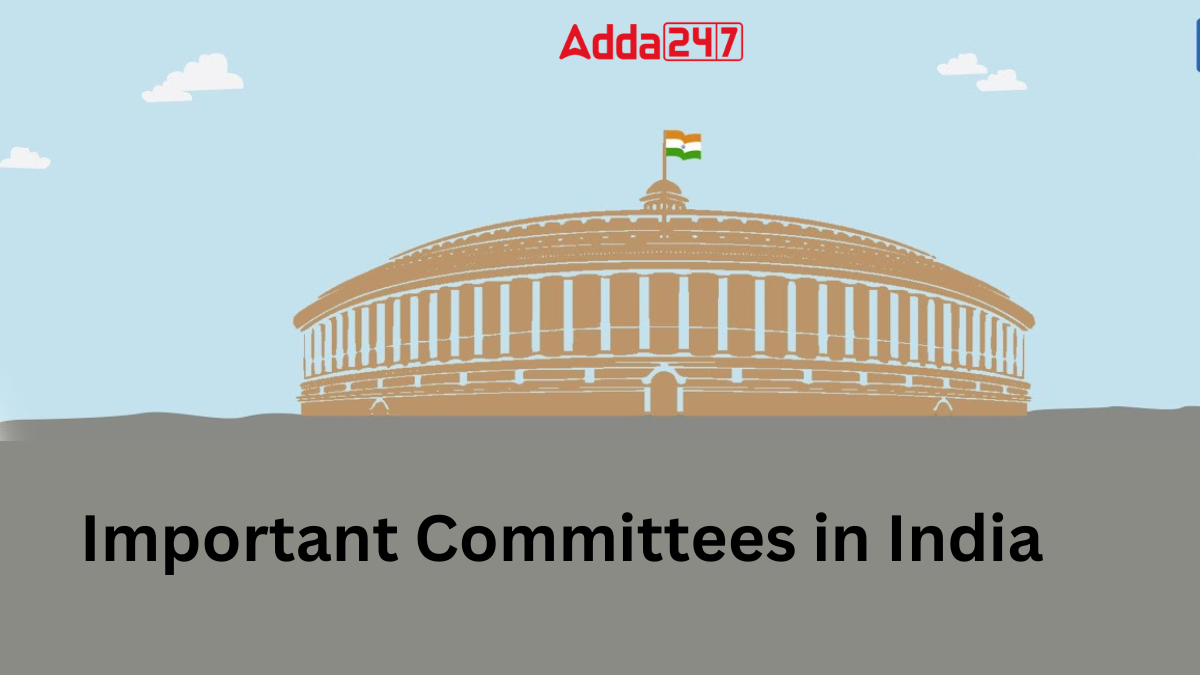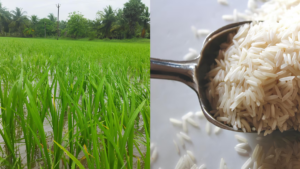In India, committees play a very important role in strengthening governance, administration, and public policies. These committees are usually formed by the government, parliament, or special bodies to examine specific issues, suggest reforms, and provide expert recommendations. From reviewing economic policies to improving education, environment, and social welfare, committees ensure transparency and efficiency. Knowing about these committees is especially important for students and aspirants preparing for competitive exams.
Significance of Important Committees of India
Important committees in India hold immense significance as they play key roles in policy formulation, oversight, and decision-making across various sectors. These committees, comprising experts and stakeholders, contribute to the democratic process by ensuring transparency, accountability, and effective governance. They address critical issues, shape legislative agendas, and uphold constitutional values, fostering socio-economic development, justice, and the rule of law in the nation’s governance framework.
List of Important Committees in India
Committees and commissions in India are established to study issues and propose recommendations for resolution. Their findings are subject to government acceptance or rejection. Notable examples include the Punchhi Commission and the Sarkaria Commission, each offering detailed recommendations on key governance matters for consideration and action.
| Important Committees in India | ||
| Committees/ Commissions | Purpose | Year Established |
| Central Information Commission (CIC) | Inquiry of complaints from aggrieved persons | 2005 |
| Central Vigilance Commission (CVC) | Prevention of corruption and investigation of corruption charges | 1964 |
| Atomic Energy Commission of India | Regulation and development of atomic energy | 1948 |
| Commission for Agricultural Costs and Prices (CACP) | Advising the government on agricultural pricing policies | 1965 |
| National Commission for Backward Classes (NCBC) | · Protection of the rights of backward classes.
· Advise the government on social and economic development for backward classes. |
1993 |
| National Commission on Cattle | Protection and development of cattle | 2019 |
| National Commission for Women (NCW) | Protection and promotion of women’s rights | 1992 |
| Competition Commission of India (CCI) | · Enforcing the Competition Act 2002.
· Regulation and promotion of fair competition in the market. |
2003 |
| Telecom Commission | Formulation of policies for telecommunications | 1989 |
| National Statistical Commission (NCS) | · Advising the government on statistical matters.
· Improving statistical systems. |
2005 |
| Election Commission (ECI) | Conducting free and fair elections in India | 1950 |
| Law Commission | Reviewing and suggesting reforms to the laws of the country | 1955 |
| Finance Commission (FCI) | Recommending the distribution of taxes between the central and state governments. | 1951 |
| National Human Rights Commission (NHRC) | Protection and promotion of human rights in India | 1993 |
| University Grants Commission (UGC) | Coordination, determination, and maintenance of standards of university education in India | 1956 |
| National Commission for Scheduled Tribes (NCST) | Protection and promotion of the rights of Scheduled Tribes | 2003 |
| National Forest Commission | Protection and development of forests in India.
Reviewing and assessing the existing forest policy. |
2006 |
| Central Water Commission (CWC) | Planning and development of water resources | 1945 |
| Khadi and Village Industries Commission (KVIC) | Promotion of Khadi and Village Industries in rural areas | 1956 |
| Staff Selection Commission (SSC) | Recruitment to posts in the ministries of the central government | 1977 |
| Administrative Reforms Commission (ARC) | Suggesting reforms in the administration of the government | 1966 |
| Union Public Service Commission (UPSC) | Recruitment to higher categories of posts in the central government.
Advising the government on personnel matters |
1926 |
| States Reorganisation Commission | · Reorganisation of state boundaries.
· Recommendations on administration of the new states. |
1953 |
| Kothari Commission | Education Policy | 1964 |
| Khosla Commission | Report on central-state relations | 1987 |
| Mandal Commission | Reservation of jobs for Other Backward Classes | 1979 |
| Sarkaria Commission | Centre-state relations and methods for consultation | 1983 |
| Nanavati Commission | 1984 anti-Sikh riots | 2000 |
| Narendran Commission | Representation of Backward classes in State Public Services | 1992 |
| National Commission to Review the Working of the Constitution | Recommendations on electoral laws | 2000 |
| Commission for Religious and Linguistic Minorities (Ranganath Misra Commission) | To look into the issues of minorities | 2005 |
| U.C. Banerjee Commission | Godhra train burning and subsequent riots | 2002 |
| M.M. Punchhi Commission | Centre-state relations | 2007 |
| Shah Commission | Emergency excesses committed during 1975-77 | 1977 |
| Kalelkar Commission | Upliftment of the vulnerable sections of the society | 1953 |




 What is the State Flower of Uttarakhand?...
What is the State Flower of Uttarakhand?...
 Which Language is known as the Italian o...
Which Language is known as the Italian o...
 Which District is known as the Rice Bowl...
Which District is known as the Rice Bowl...








